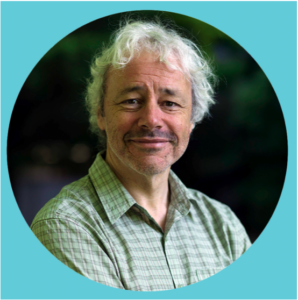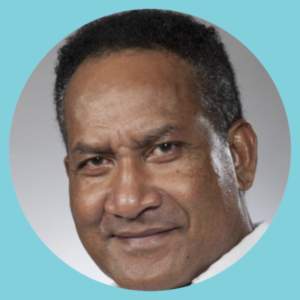Tarras Airport letter Signatories
Below are biographies of the 11 signatories of the Tarras Airport Letter, written/sent in January 2023. The biographies below link out to each expert’s university or professional bio page, including links to publications and research.
The signatories below are listed in alphabetical order, by surname. Click on each person to see their details.
Since the original 11 signatories came together in January 2023, a significant number of additinoal professors, academics and researchers have asked to add their voice. You can see the expanded list by clicking this link.
Professor Jonathon Boston ONZM
Emeritus Professor of Public Policy, School of Government, Victoria University of Wellington.

Jonathan has published widely on a range of matters including public management, social policy, climate change policy, tertiary education policy, and comparative government.
While at Victoria University of Wellington, Jonathan has served as Director of the Institute for Governance and Policy Studies and Director of the Institute of Policy Studies. Earlier in his career he worked briefly for the New Zealand Treasury and taught at the University of Canterbury. During 2000-01 he was a member of the Tertiary Education Advisory Commission, and later helped to design, implement and evaluate the Performance-Based Research Fund. More recently he served as Co-Chair of the Expert Advisory Group on Solutions to Child Poverty, established by the Children’s Commissioner. He was awarded a Fulbright Fellowship in 2014 to undertake research on ‘Governing for the Future: Bringing Long-Term Policy Issues into Short-Term Political Focus’.
Jonathan serves on the boards of a number of organizations including Oxfam NZ.
Jonathan’s recent research has focused on the challenge of governing for the long-term in the face of strong presentist tendencies in democratic policy-making. Current projects include designing institutions to manage the challenge of climate change adaptation, reforms to the welfare state, and reforming parliament.
Distinguished Professor James Higham
Professor of Sustainable Tourism, Department of Tourism, University of Otago.

James Higham is a Distinguished Professor at the University of Otago (New Zealand), and Jim Whyte Fellow, University of Queensland (Australia) (2016-2019). His major service roles have included Head of Department (2006-2011), member of the Business and Economics PBRF panel (2012, 2018) and co-editor of the Journal of Sustainable Tourism (2014-2021).
James has research interests in sustainable tourism, tourism and global environmental change, and tourism carbon emissions. His current research projects, on decarbonising leisure mobilities (Norway Research Council), reducing global tourism carbon emissions (Australia Research Council) and regional tourism carbon footprint analysis (Auckland Unlimited), are being advanced in collaboration with Professor Jens Kristian Steen Jacobsen (Norway), Dr Ya-Yen Sun (Australia) and Professor Susanne Becken (NZ). James is a member of the Steering Committee of the University of Otago Transport Research Network, a member of He Kaupapa Hononga (Otago Climate Change Research Network) and affiliate of the University of Otago Centre for Sustainability.
Professor Bronwyn Hayward MNZM
Department of Political Science and International Relations, University of Canterbury.
Director of The Sustainable Citizenship and Civic Imagination Research Group, University of Canterbury.

Prof Bronwyn Hayward (MNZM) is a Professor in the Department of Political Science and International Relations and Director of The Sustainable Citizenship and Civic Imagination Research group. Her research focuses on the intersection of sustainability, youth, climate change and citizenship.
Bronwyn is a Coordinating Lead Author for the Intergovernmental Panel on Climate Change AR6 report (cities & infrastructure) and was a lead author for the 2018 Special Report on 1.5 (Sustainable development & Poverty eradication). She is co-primary investigator with University of Surrey’s ESRC funded CUSP: Centre for Understanding Sustainable Prosperity, she leads the CYCLES Children and Youth in Cities lifestyle Evaluation study in 7 world cities.
She was an Erskine Fellow with University College, Oxford, UK 2017. Recent books are Sea Change: Climate politics and New Zealand (BWB, 2017) and Children, Citizenship and Environment (Routledge, 2012 and a revised second #SchoolStrike edition Routledge London, 2021).
She has served on the International Social Sciences Council steering committee – Transformative Research, as a co-researcher with University of Oslo, Voices of the Future project, a lead author on UNEP’s global survey of 18-35 year olds lifestyles and sustainability & as a trustee for the UK Foundation for Democracy and Sustainability. Outside academia Bronwyn worked for children’s TV, as a Ministerial appointment to the NZ Broadcasting Standards Authority & as a trustee for the SPARK Foundation & Give A Little. She was inaugural joint winner of UC Arts Conscience & Critic of Society Research Award 2014, Kiwibank Local Hero 2019, winner in 2021 of Westpac/Stuff media Supreme Woman of Influence & Environment categories.
Professor Shaun Hendy FRSNZ MNZM
Centre for Science and Society, Faculty of Science, Te Herenga Waka – Victoria University of Wellington.

Professor Shaun Hendy MNZM FRSNZ is a Founder and Chief Scientist at Toha, a company that operates a marketplace for environmental action, and an adjunct at the Centre for Science and Society at Te Herenga Waka – Victoria University of Wellington.
He was founding Director of Te Pūnaha Matatini, a national Centre of Research Excellence, focussing on complex systems from 2015-2021. He has previously worked as an academic at both the University of Auckland and Victoria University of Wellington, as a scientist at Callaghan Innovation, and currently sits on the Callaghan Innovation Board.
He has won many awards, including the Callaghan Medal for Science Communication, the Prime Minister’s Science Media Communication Prize, and the E. O. Tuck medal for applied mathematics. He also led the team that won the 2021 Prime Minister’s Science Prize for their COVID-19 response.
He co-authored Get Off the Grass with the late Sir Paul Callaghan in 2012, and has since written two other books, Silencing Science (2016) and #NoFly (2019).
Distinguished Professor Robert McLachlan FRSNZ
School of Mathematical and Computational Sciences, Massey University.

Robert McLachlan studied at Canterbury and Caltech and has worked at the University of Colorado at Boulder and ETH Zurich. He has been a research fellow at the Isaac Newton Institute, Cambridge, the Mathematical Sciences Research Institute, Berkeley, and the Center for Advanced Study, Oslo. Since its founding in the early 1990s he has been a leader in the new field of geometric numerical integration, a technique for the reliable simulation of large-scale complex systems, especially those arising in computational physics and chemistry.
Professor Ilan Noy
Chair in the Economics of Disasters and Climate Change, School of Economics and Finance, Victoria University of Wellington.

Professor Ilan Noy is the inaugural Chair in the Economics of Disasters and Climate Change, established in July 2013 with original sponsorship from Victoria University of Wellington, the Earthquake Commission (EQC) and the Ministry for Primary Industries (MPI). The focus of the Chair is on the research and application of economics to the management of natural hazards, disasters, and climate change.
Professor Steven Ratuva
Director of the MacMillan Brown Centre for Pacific Studies, University of Canterbury.

Professor Steven Ratuva, an award-winning political sociologist and global interdisciplinary scholar, is Director of the Macmillan Brown Centre for Pacific Studies. He was awarded the 2020 Metge Medal by the Royal Society of New Zealand -Te Apārangi, the country’s highest award in social science research excellence. He was also co-winner of the 2019 University of Canterbury research medal, the university’s highest academic honour. He became the first Pacific Islander and foreign national to win both esteemed and highly contested awards. He is also recipient of a number of research grants by Marsden, NZ Health Research Council, Ministry of Foreign Affairs and others, totalling a few million dollars.
He was a recipient of a Fulbright Senior Fellowship and was Fulbright professor at the University of California (LA), Duke University and Georgetown University in 2018. He is Chair of the International Political Science Association research committee on Security, Conflict and Democratization and former President of the Pacific Islands Political Studies Association. He has transdisciplinary across sociology, anthropology, political science, development studies, economics, philosophy and history.
With a PhD from the Institute of Development Studies (University of Sussex), he has published widely on a range of issues Pacific societies and culture, indigenous knowledge, development, conflict, peace, political change, coups, memory activism, social solidarity economy, social protection, elections, ethnicity, security, military, affirmative action, COVID-19, social indexes, indigenous knowledge, climate security and nationalism.
Professor James Renwick
Professor of Physical Geography, School of Geography, Environment and Earth Sciences, Victoria University of Wellington.

I am fascinated by the general circulation of the atmosphere – how it transports energy and momentum and what it does to achieve this. In particular I am interested in how heating in the tropics is communicated to higher latitudes by the excitation of large-scale waves and how this affects the storm tracks and jet streams. I am interested in how all this affects Antarctic climate, especially the growth and decay of Antarctic sea ice. How does the atmospheric circulation (the wind) affect sea ice extent? How this can be tied back to tropical influences?
I am also involved with climate prediction work, from next season to the end of the century and beyond. I have been involved with the Intergovernmental Panel on Climate Change process since the early 2000s, and I speak regularly to the media on climate change issues.
I have a general background in atmospheric physics, plus mathematics and statistics and have broad interests most aspects of climate, from the distant past to the near future. This includes paleoclimate reconstruction, synoptic climatology, the climate of New Zealand, climate modelling, climate change, and the use of statistical and matrix techniques to analyse large data sets.
Distinguished Professor Dame Anne Salmond, ONZ, DBE
Distinguished Professor of Maori Studies, University of Auckland.

Dame Anne Salmond is a Distinguished Professor in Maori Studies and Anthropology at the University of Auckland. In 2013 she won the Rutherford Medal, New Zealand’s top scientific award, and became the New Zealander of the Year. She is a Foreign Associate of the National Academy of Sciences in the US, Corresponding Fellow of the British Academy, and Foreign Member of the American Philosophical Society.
Dame Anne has a long-standing engagement with environmental issues. In 1990 she became Deputy Chair of the Parks and Wilderness Trust, and in 1999 she and her husband Jeremy established the Waikereru Ecosanctuary in Gisborne (www.waikereru.org). Since 2014 she has been on the Air New Zealand Sustainability Panel, and led the Te Awaroa: Voice of the River project to restore rivers across New Zealand.
Dame Anne is the the patron of many environmental and community organizations. She has held a range of public offices, including the founding board for Te Papa: Museum of New Zealand, Deputy Chair of the Foundation for Science, Research and Technology, and Chairperson of the New Zealand Historic Places Trust.
Professor Huhana Smith
Head of School, Whiti o Rehua School of Art, Massey University.
Co-Chair Climate Change Joint Action Committee – Horizons Regional Council, Palmerston North.

Associate Professor Huhana Smith is a visual artist, curator and principle investigator in research who engages in major environmental, trans-disciplinary, kaupapa Māori and action-research projects. She is co-principle investigator for research that includes mātauranga Māori methods with sciences to actively address climate change concerns for coastal Māori lands in Horowhenua-Kāpiti. Huhana actively encourages the use of art and design’s visual systems combined in exhibitions, to expand how solutions might integrate complex issues and make solutions more accessible for local communities.
She has expertise in transformative research, trans-disciplinary approaches, collaborative, Kaupapa Māori, Mātauranga Māori approaches.
Dr Huhana Smith works with her teams across College of Creative Arts across transdisciplinary spaces, discourses and realities by drawing contemporary art and design together, with mātauranga Māori, sciences and communities. For the complex environmental projects she leads or co-leads, she creates innovative approaches and outcomes, particularly with exhibitions as research techniques.
Professor Anita Wreford
Agribusiness & Economics Research Unit, Lincoln University.

I am an applied economist specialising in adaptation to climate change, with a particular focus on agriculture and the primary sector.
I have 19 years of research experience, across many areas of climate change adaptation, including economic evaluations of impacts and adaptation (focusing particularly on applying robust methods to deal with climate uncertainty); identifying and evaluating the effectiveness of adaptation options across sectors; risk assessment; community resilience to extreme weather events; and adaptation decision-making among various stakeholders. Currently based in the AERU at Lincoln University, I lead the Deep South National Science Challenge’s programme on Impacts and Implications.
I am a lead author on two Intergovernmental Panel on Climate Change (IPCC) reports: A Special Report on Climate Change and Land (2019) and the forthcoming Australasia Chapter of the Sixth Assessment Report (2021).
I work closely with policy makers both at a national level and local government (in the UK and New Zealand), providing advice and analysis for climate adaptation decisions and conducted work for the EU Commission and the OECD, the Scottish Government’s ClimateXChange programme, and the UK’s Committee on Climate Change.
